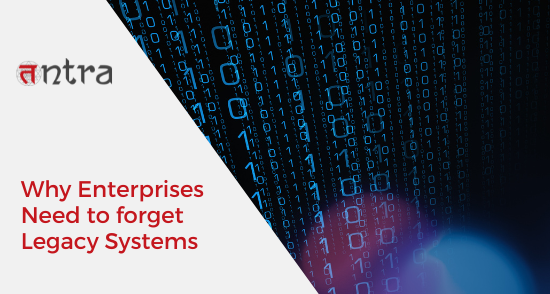In 2017, there was a computer glitch at the Internal Revenue Service (IRS). It blocked the agency’s ability to process the electronically-filed income tax returns of over five million Americans.
The claim from lawmakers is that the agency’s technology grew worse over the years. As a result, its investment in modernization was reduced by $3 billion. During this period, the tax network multiplied substantially. There was a high increase in the number of people who filed taxes electronically.
While COBOL is one of the most popular languages among federal governments, it was developed 60 years ago. Today, Python, Go, Javascript, Java, and Kotlin are the more popular and relevant programming languages.
(Source: ModLogix)
How Legacy Systems Impact Performance
70 percent of federal IT decision-makers in the USA, Germany, the UK, Japan, Brazil, India, and China use outdated software. They use technologies like COBOL that are not useful anymore. It leads to terrible outcomes for the entire country.
Retail organizations spend 58% of their IT budget on maintaining and continuing their legacy systems. However, they also face cybersecurity issues because of the sensitive nature of online payments and digital transactions.
90% of businesses are held back in growth and performance improvement due to old technology. As a result, they face challenges in productivity, efficiency, and even employee satisfaction.
More than 50% of employees are unhappy at work due to the software technology they work with. Nearly 25% of employees consider leaving their job because the technology they use at the workplace is outdated and irrelevant.
Why Moving on from Legacy Systems is Critical
Legacy systems are a bottleneck to growth – both individual and organizational. They don’t allow the enterprise to connect to the present or move toward the future. For example, if an enterprise still uses outdated technology, it might not be able to find people who work with it. Everyone has moved to better solutions. In such a case, the enterprise is stuck in the past. The only option is to replace the entire system.
That’s why it’s essential to upgrade and update the legacy systems at regular intervals of time. Sometimes, it’s better to let them go altogether and replace them with the most relevant solutions.
Here’s why updating legacy systems is critical –
- To improve efficiency
Legacy systems were perfect for their time. But they are not relevant today. Outdated systems hamper productivity and create an inefficient workflow. They may not be able to handle the current requirements of the market. An outdated ledger is not relevant for a company that needs an ERP to manage thousands of entries. - To reduce security risks
Older systems frequently run out of updates. They are outdated technology – one which the vendor doesn’t provide any more upgrades and new version releases. Therefore, the risk of security vulnerabilities is higher. Enterprise modernization enables companies to update systems regularly. It keeps them secure as the system is adept at tackling the current vulnerabilities and cyber threats. - To achieve insights
Legacy systems aren’t capable of providing valuable insights as they require people to manually work with data. Outdated technology cannot provide a clear view of the data flow. Enterprise modernization offers tools and technologies for advanced reporting, pattern analysis, and data insights. It enables the enterprise to make better and more informed decisions.
Conclusion
Having a proper legacy system modernization strategy in place is key in approaching the process. Legacy systems cannot be maintained for a long time. Experts who used to work with legacy systems are constantly diminishing. They are moving to better technologies that have a greater scope of work. Therefore, it has become important to update legacy systems and focus on areas where relevancy can be easily maintained.
Understanding legacy systems and identifying the gaps is essential for enterprise modernization – and a good software product engineering team can assist with that.



